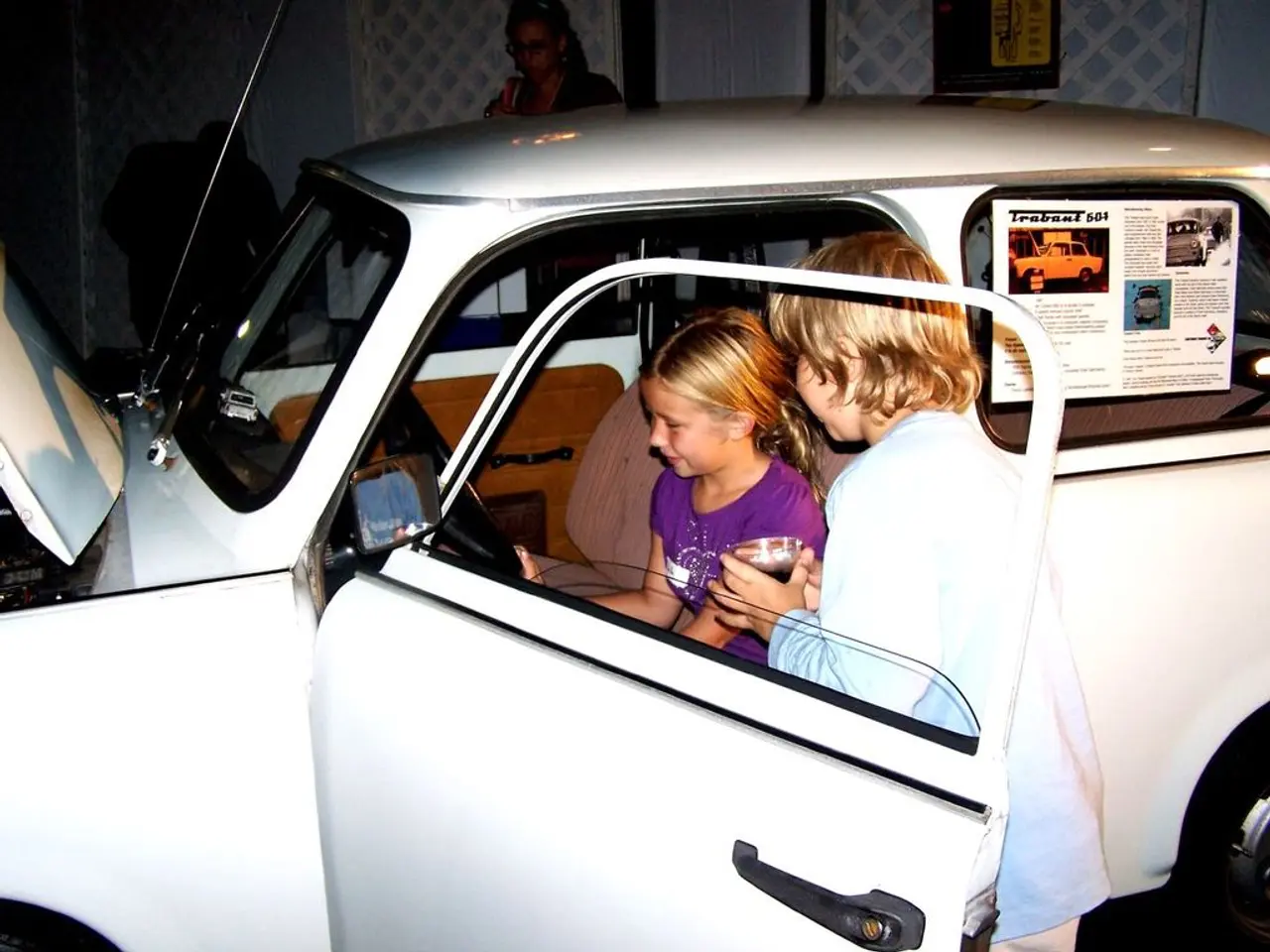Tragedy Strikes as Social Services Erroneously Removes a 3-Year-Old Boy, Leaving Him Unattended in a Scorching Vehicle
In a heartbreaking series of events, at least 16 children have lost their lives in hot cars across the United States this year, according to Kids and Car Safety. The latest incident occurred in Birmingham, where a 3-year-old boy was found deceased in his car seat in the driveway of his residence. The incident is currently under investigation by local police.
This tragic incident is not an isolated case. From 1990-2024, at least 1,126 child fatality cases have resulted from infants being left in hot cars in the United States. Moreover, at least another 7,500 children have survived with varying degrees of injury.
One such incident occurred on June 28, when a 3-month-old boy was found deceased in a locked car, after his father forgot he was in the backseat of the car. The Texas man was reportedly drinking at the time of the incident and is now facing charges. Earlier this month, a 5-year-old boy passed away in a hot car outside a daycare in San Antonio, Texas.
These incidents highlight the urgent need for social services agencies to improve their procedures to prevent children in their care from being left in hot cars. According to a report by the National Safety Council, 55% of those who lose their lives were unknowingly left by an otherwise loving, responsible parent or caregiver.
To address this issue, social services agencies can implement a combination of systematic reminders, training, and safety protocols. These measures include:
- Establishing mandatory safety protocols that prohibit leaving children unattended in vehicles under any circumstances and reinforcing this policy rigorously across all staff and caregivers.
- Incorporating visual reminder systems, such as placing an item belonging to the child (a blanket, stuffed animal, or diaper bag) on the front seat or dashboard to ensure staff physically check the car’s back seat before exiting the vehicle.
- Training and educating all caregivers and agency staff about the dangers of hot car deaths, including ways to recognize signs of heatstroke in children and emergency procedures like calling 911 immediately if a child is found alone in a car.
- Requiring that vehicles always be locked when unattended to prevent children from climbing into cars unnoticed, adding an additional layer of safety.
- Integrating child safety and injury prevention measures into the agencies' overall safety plans, including transportation safety, emergency preparedness, and child abuse prevention training, so the issue of hot car deaths is covered in comprehensive safety education.
- Engaging community stakeholders and using continuous quality improvement (CQI) processes to evaluate and improve child safety outcomes, ensuring that practices to prevent incidents like hot car deaths evolve based on data and expert input.
By combining these procedural enhancements—clear policies, safety reminders, staff training, and continuous evaluation—social services agencies can significantly reduce the risk of children in their care being left in hot cars, thereby preventing heatstroke-related injuries and fatalities.
The strategies recommended are supported by public health organizations and child safety experts, who emphasize that hot car deaths are entirely preventable with proper precautions. It is our collective responsibility to ensure the safety and wellbeing of our children, and these measures are a crucial step towards achieving that goal.
- The tragic death of the 3-year-old boy in Birmingham serves as a reminder that the issue of children left in hot cars is not just limited to fitness-and-exercise or mental-health concerns, but also falls under the broader category of general-news.
- The National Safety Council reported that in 55% of cases, children who lose their lives were unintendingly left by loving, responsible parents or caregivers, indicating a need for health-and-wellness measures in the form of systematic reminders and training within social services agencies.
- In an effort to prevent such incidents, social services agencies can adopt strategies like nutritional education programs, which not only promote physical fitness and exercise but alsomental health, as a holistic approach to childcare, thereby potentially reducing the risk of forgetting a child in a hot car.




